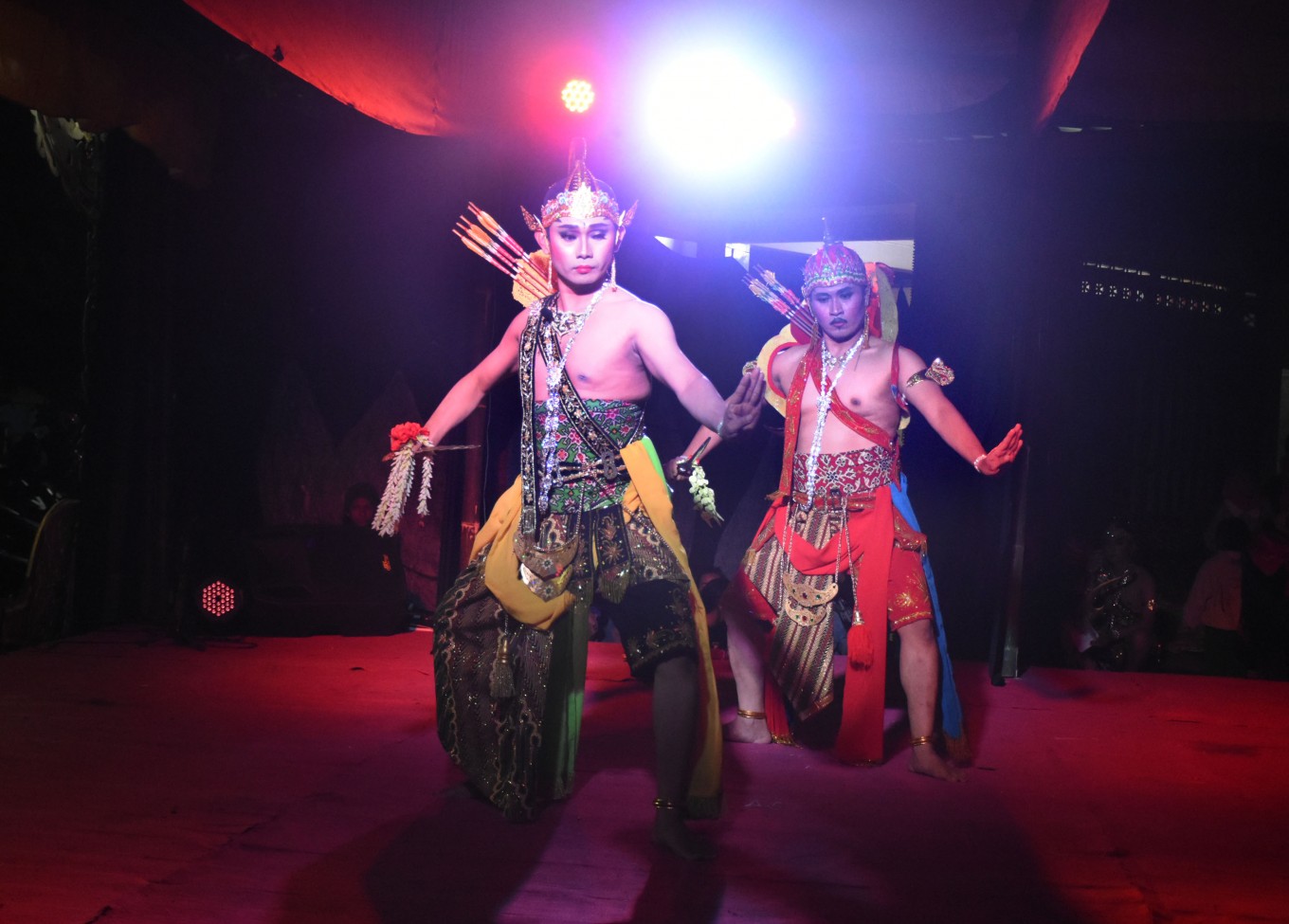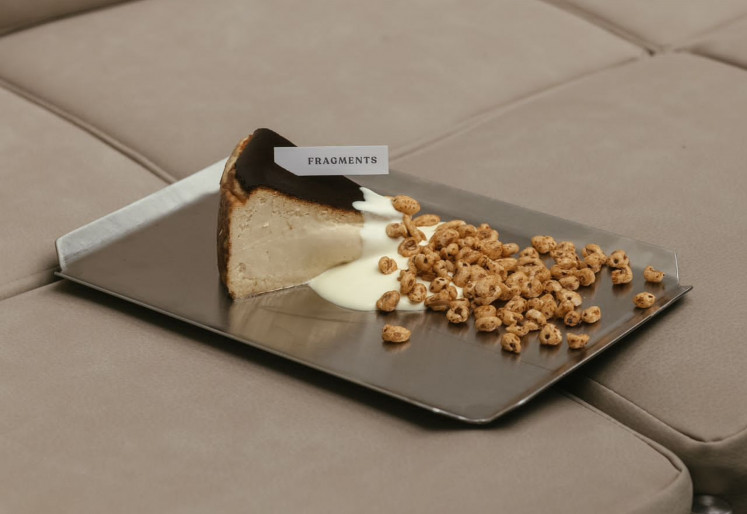Popular Reads
Top Results
Can't find what you're looking for?
View all search resultsPopular Reads
Top Results
Can't find what you're looking for?
View all search results'Wayang orang penget' delights Malang theatergoers
Sang Putra Kunti follows the story of Karna and Pandawa's sibling rivalry.
Change text size
Gift Premium Articles
to Anyone
 The 'Sang Putra Kunti' story, performed on Saturday by a 'wayang orang penget' troupe at the Rampal Celaket subdistrict office in Malang, East Java, tells of the sibling rivalry between brothers Karna and Arjuna. 'Wayang orang penget' is a unique form of human puppet theater that does not follow the structure of a typical 'wayang orang' performance. (JP/Aman Rochman)
The 'Sang Putra Kunti' story, performed on Saturday by a 'wayang orang penget' troupe at the Rampal Celaket subdistrict office in Malang, East Java, tells of the sibling rivalry between brothers Karna and Arjuna. 'Wayang orang penget' is a unique form of human puppet theater that does not follow the structure of a typical 'wayang orang' performance. (JP/Aman Rochman)
T
he Rampal Celaket subdistrict office in Malang, East Java, was crowded with visitors on Saturday evening. From afar, the local residents could hear the sound of gending (gamelan music) that marked the beginning of a wayang orang penget (human puppet theater) show.
Fourteen wayang orang artists from the Malang theatrical community performed Sang Putra Kunti, a story of sibling rivalry between brothers Karna and Arjuna, the sons of Dewi Kunti who have very different fates.
The performance opened with a synopsis to the accompaniment of gending and sinden (female vocalists of a gamelan orchestra), followed by a scene of children playing traditional games like egrang (bamboo stilts), jump rope and hide-and-seek.
The children then discover their grandfather's book about wayang, which leads to the actual opening to Sang Putra Kunti.
Read also: Rekindling Malang's Ang Hien Hoo 'wayang orang'
The wayang orang penget show also presented comic acts, but instead of the usual Ponokawan comedy, the performers took to the stage without the traditional costumes. The hour-long performance closed with a gunungan wayang kulit, a symbolic mountain puppet that traditionally opens and closes every wayang kulit (shadow puppet) show, with the silhouette of the gunungan projected on the backdrop.
Director Tulus Tri Sumanto said that a wayang orang penget performance was different from a regular wayang orang show, as it did not involve a dalang (puppet master), a Ponokawan group or Yogyakarta's traditional gambyong dance.
Although wayang orang penget did not follow the traditional structure of a wayang orang show, the theatrical art form still adapted stories from the Mahabharata or the Ramayana.
Tulus said he cut down the show from three hours to one hour, and used the local East Javanese dialect, which is known for its straightforward language. He said he hoped that the audience would enjoy wayang orang penget as much as they enjoyed ludruk (traditional Javanese comedy) or ketoprak (traditional Javanese drama).
Tulus added that wayang orang was rarely performed in Malang, and that most wayang orang stories were performed as a dance or dance theater. (jes/kes)










